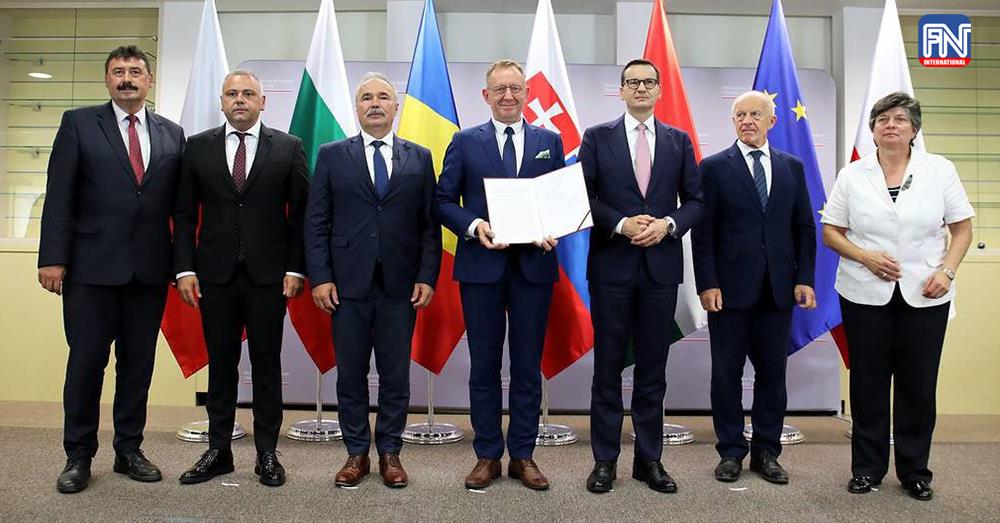MOSCOW, July 19 (TASS) – Poland will not open its borders to grain from Ukraine and will unilaterally extend the ban on its supply to the country after September 15, if the European Commission refuses to do so.
Polish Prime Minister Mateusz Morawiecki made this announcement at a press conference following a meeting of representatives of the ministries of agriculture of Bulgaria, Hungary, Poland, Romania and Slovakia.
According to him, in less than two months - on September 15 - the EC may reopen the borders to Ukrainian grain, but Poland cannot afford to destabilize its market.
"I want to say frankly - we will not open this border," Morawiecki said.
"Either the European Commission will agree to work out a common solution that extends this ban, or we will do it ourselves," he added.
"We will resolutely defend Polish farmers," the head of the Polish government promised.
"Secondly, if there are new signs of destabilization on other agricultural markets, other products, we will do the same, because the government must protect agriculture," he stated.
"Either mechanisms and norms for the import of agricultural products are developed after September 15 that will make it impossible to destabilize the market in Poland, or the Polish government will do it unilaterally or together with our friends from other countries. It will be their decision. We will do it one way or another," Morawiecki concluded.
In April, five Central European countries - Bulgaria, Hungary, Poland, Romania and Slovakia - unilaterally banned the import of grain and other agricultural products from Ukraine. Later, they canceled these measures in exchange for the European Commission’s decision to introduce, first until June 5, and then until September 15, an embargo on supplies from Ukraine of four types of grains and oilseeds: wheat, corn, rapeseed and sunflower seeds.
Hungary and Poland consider this decision insufficient and would like the EU to extend the ban until at least the end of the year. Warsaw is also in favor of expanding the list of products that cannot be supplied to countries bordering Ukraine, and adding to it, in particular, raspberry and strawberry ice cream.





